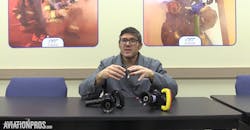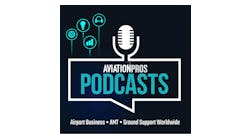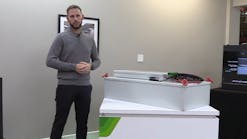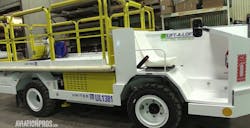Air travelers are checking an unprecedented amount of luggage after the recent disclosure of an alleged terrorist plot, an onslaught that threatens to overwhelm bomb detectors and create security gaps, the nation's aviation-security chief said Wednesday.
In an interview with USA TODAY, Transportation Security Administration head Kip Hawley said there has been a 20% surge in checked luggage at U.S. airports since liquids were banned from carry-on bags Aug. 10.
Domestic passengers usually check almost 1 billion bags each year, according to the Air Transport Association, an airline trade group. The increase means that the nation's security screeners are handling more than half a million additional checked bags each day.
The sudden increase "puts on a strain that could result in some vulnerabilities," Hawley said. The system that screens all checked luggage for bombs "is being stressed," he said.
"It's the pressure on the system that leads to people saying, 'Hurry, hurry, hurry,'" Hawley said. "We want our (screeners) to focus on their security job without cutting corners because of volume pressure. ... Anytime you have a system that's overwhelmed, that's where failure is a concern."
Many travelers have stopped using carry-ons since the TSA barred passengers from taking most liquids, gels and lotions onto flights after British investigators said they had thwarted a plot to destroy U.S.-bound jets with liquid explosives.
The increase in checked bags could lengthen lines at airports. At San Francisco International Airport, the increase has slightly increased lines at check-in counters and added 10-15 minutes to the wait at baggage carousels, airport spokesman Mike McCarron said.
A June report by the Government Accountability Office, Congress' investigative arm, said that when luggage-screening machines get backed up, the TSA uses alternative procedures such as bomb-sniffing dogs and hand searches. Those procedures "involved trade-offs in security effectiveness," the report said.
The impact is "not fully known because the TSA has not tested the effectiveness of alternative screening procedures," the report said.
Cris Soulia, a screener at San Diego International Airport, said time pressure has always been an issue.
"When you get airlines and (TSA) upper management breathing down your neck, maybe it's not something intentional that you're doing, but it's like, 'What do I need to do to make these people happy and go away?'" Soulia said.
He said screeners were required to work six days last week to handle extra baggage. At Boston's Logan International Airport, "everybody just volunteered" to work overtime, Boston screener A.J. Castilla said. Checked bags
1 billion Annual number on domestic flights, before recent surge
3.6 million Number lost, damaged
120-180 bags an hour Speed of bomb-detection machines
$1 billion Cost of luggage screening
Sources: Air Transport Association, Government Accountability Office, Department of Transportation





